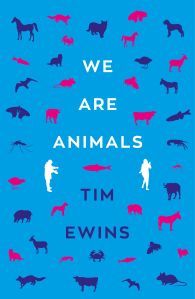Blog for B for Bookreview
Guest blog for B for Bookreview is here
and copied and pasted here. This blog is about Love Island, guns and wine…
Guest Post
Fate and travel – the inspiration for We Are Animals
It was recently pointed out to me that the word ‘fate’ is used 27 times in We Are Animals. After that sentence, I now know that I’ve written that word at least 28 times, probably more. In the book, Manjan, the protagonist, waits on a beach, certain that fate will bring an old flame back to him (29 times, but I’ll stop counting now). As the author though, I’m not even sure I believe in fate.
I met my wife (Gemma) on my first day of university and, although I’m not a fan of ‘insta-love’ in literature, I knew that I loved her from the first moment I spoke to her. The feeling never left me during the next five years of friendship, and on the day that I eventually told Gemma how I felt, she told me that she had felt the exact same way since the first day we met too. She even remembered the first thing I’d said to her (it was something about the colour green, honestly, it wasn’t worth remembering).
I’m not saying it was fate but it was something, and I would like to think that if Gemma and I were to lose each other, that same something would bring us back together again. Having said that, Love Island is about to start and I have no idea where she is.
This idea of some kind of invisible force loosely formed the basic plot for We Are Animals, and the ideology of Manjan, who could, I suppose, be described as a lovestruck idiot. Manjan and his partner (um… Ladyjan) in We Are Animals repeatedly lose each other over the course of fifty-four years, and something (if Manjan is to be believed, fate) keeps bringing them back together. It happens no matter which country they happen to be in at the time. Coincidence? Well, no, fiction, but roll with me here.
So, fate, or the lack thereof, is one of the main themes in We Are Animals. Another is travel. The novel is set in ten countries and there are sub-plots and scenes that were influenced by my own travels. An obvious example for me is a scene where Manjan and his group of travellers try to ask a group of people in a small town in Russia for a car pump. They can’t speak Russian so Manjan mimes using a pump.
When Gemma and I were in Cambodia, we found ourselves in a field several miles outside of Kampot on a single motorbike with two flat tyres. Sadly, neither Gemma nor I speak Khmer, so we happily mimed a pump to someone who appeared to live alone in an isolated hut. He retreated back into the hut and it only then occurred to us that he may well be fetching the shotgun that we’d just acted out. It probably hadn’t helped that we also made the universal noises for a pump (which, unfortunately, are also the universal noises for a shotgun).
I hate to ruin the suspense here, but the man mended our bike and was generally very helpful. It didn’t end the same for Manjan’s group, although that’s all I’ll say about that here… of course, the book will say more 




